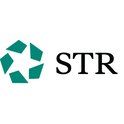US Hotel Occupancy Inches Closer to 2019 Levels
Shift in Hotel Stays Points to Rise in Business Travel
U.S. hotel occupancy declined slightly week to week, but still inched closer to the level achieved in 2019, as a shift to more hotel stays Monday to Thursday indicated rising business travel.
The latest performance data from CoStar hospitality analytics firm STR shows hotel occupancy for the week ending Oct. 23 was 64%, down about a percentage point from the previous week. In the same period in 2019, occupancy dropped by two percentage points. As a result, occupancy was one percentage point closer to what it was during the same week in 2019.
The decline was driven mostly by a weaker Sunday, when occupancy dropped by five percentage points from the previous week which included the Columbus Day holiday. Friday and Saturday occupancy was also soft, falling two percentage points.
There is good news, however. Monday through Thursday hotel occupancy improved for a third consecutive week, which STR believes is a result of rising business travel. Occupancy increased by half a percentage point to 61% on those four days.
Some may argue that the four-day gain was a result of a weak Monday in the previous week, due to the holiday. However, Tuesday through Thursday occupancy was also up to 62%, slightly stronger than the four-day period.
While there is growing evidence of business travel, leisure travel remains a strong driver of hotel performance.
Weekend occupancy over Friday and Saturday has shown the most resilience, hovering around 77% for the past six weeks, and on average is 98% of what it was at this time in 2019.
However, workday occupancy from Tuesday through Thursday has been increasing over the past six weeks, after bottoming out the week of Labor Day, and is 84% of what it was in 2019.
The data shows a similar trend in the top 25 U.S. markets, where Tuesday to Thursday occupancy averaged 60%, with key business centers — including Boston, Los Angeles and New York City — above 65% occupancy.
Sunday and Monday occupancy has been steadfast over the six-week period at 55%, which is 89% of the occupancy level achieved in 2019.
While much of the focus has been on demand, U.S. hotel average daily rate continues to beat expectations.
Since the week before the Fourth of July, an average of 77% STR-defined markets have reported weekly ADR higher than what it was in 2019. While the index and the number of markets above 2019 levels peaked in the summer, the fall season hasn’t brought the decline that many anticipated.
In the latest week of reporting, 77% of markets reported ADR above the comparable week of 2019. Of course, some of the ADR growth is a result of inflation and other cost pressures. Considering inflation, real ADR has been above 2019 levels in an average of 56% of markets over the past 17 weeks. In the week of Oct. 23, 55% of markets reported higher ADR than in 2019. Overall, the index to 2019 rose during the week even as ADR itself was basically flat week over week.
Revenue per available room fell for the first time in three weeks, dropping 1.6% from the previous week, but was 90% of what it was in 2019, which was a moderate improvement.
On an inflation-adjusted basis, real RevPAR was 85% of the 2019 level. The index has been above 80% – STR’s “recovery” threshold – for the past 21 weeks on a nominal basis and 19 weeks using inflation-adjusted methodology.
Using a 28-day moving average, 58% of markets were at “peak” RevPAR — above 100% of the 2019 level. Over the past 17 weeks, an average of 60% of markets have been at “peak” RevPAR in any given week. Throughout this period, only two markets have almost consistently remained in “depression” — with RevPAR below 50% of the 2019 level — San Francisco and San Jose.
About STR
STR provides premium data benchmarking, analytics and marketplace insights for the global hospitality industry. Founded in 1985, STR maintains a presence in 15 countries with a corporate North American headquarters in Hendersonville, Tennessee, an international headquarters in London, and an Asia Pacific headquarters in Singapore. STR was acquired in October 2019 by CoStar Group, Inc. (NASDAQ: CSGP), the leading provider of commercial real estate information, analytics and online marketplaces. For more information, please visit str.com and costargroup.com.








